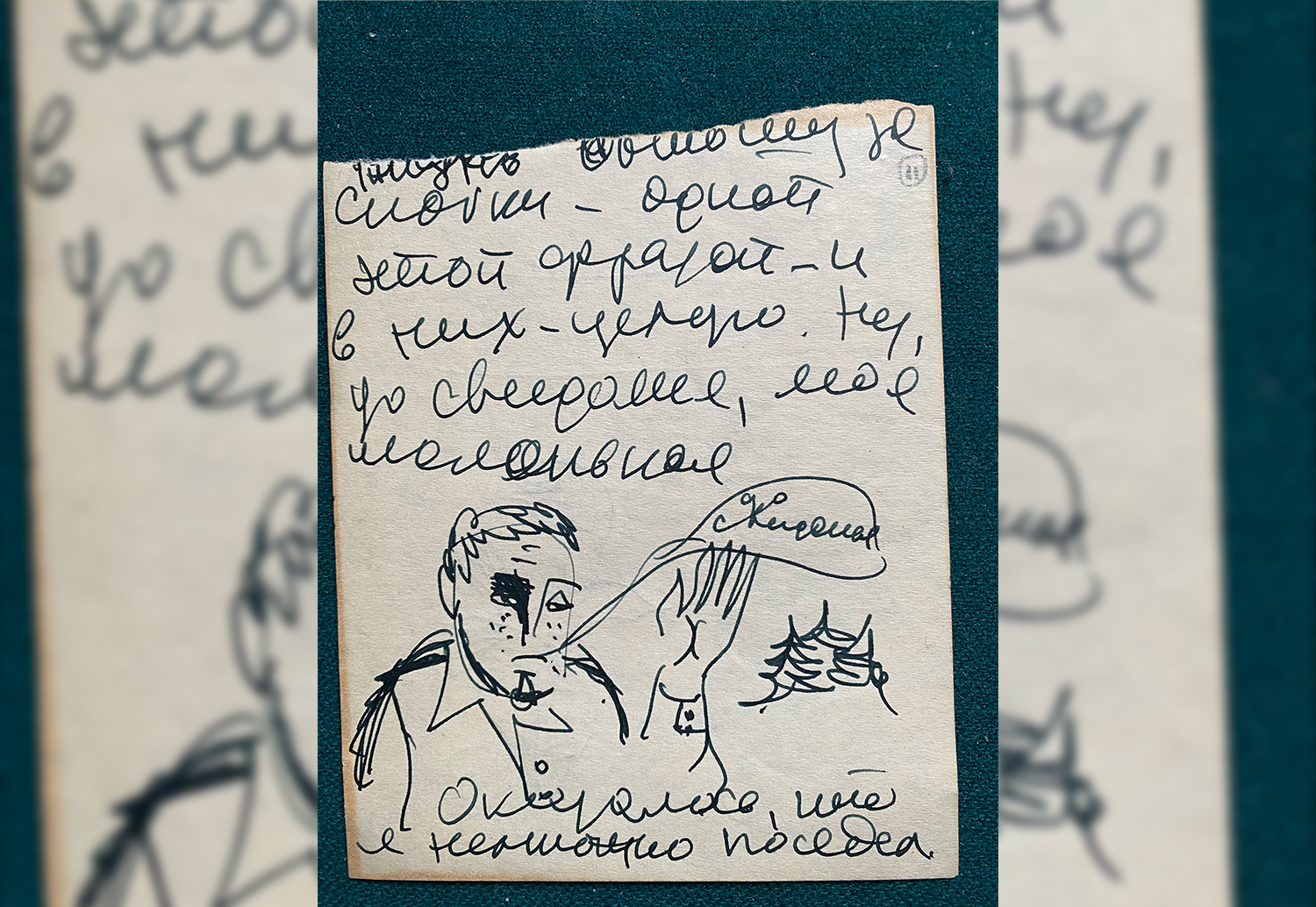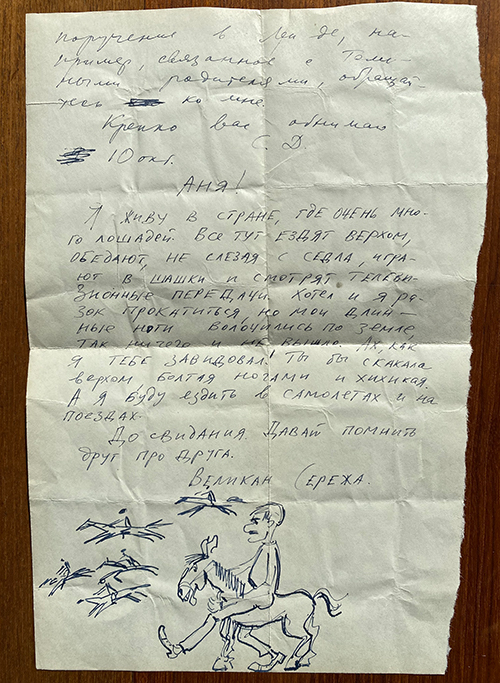Princeton University Library acquires the papers of Soviet poet and secretary to Anna Akhmatova Anatoly Naiman (1936-2022)

A letter from Joseph Brodsky to Galina Narinskaya (Naiman’s wife)
Along with Dmitrii Bobyshev, Nobel laureate Joseph Brodsky, and Evgenii Rein, Anatoly Naiman was a member of the “Akhmatova orphans” circle, a group of four poets whom the Silver-Age poet Anna Akhmatova called her “magic choir.” Naiman would also become Akhmatova’s secretary in her later years. In addition to drafts of his own works and his own personal and professional correspondence, Naiman’s papers include correspondence and other typescript and manuscript materials by many impactful twentieth-century Russian literary figures, among them Akhmatova herself, Brodsky, Sergei Dovlatov, Lidia Chukovskaya, Evgenii Rein, and Dmitrii Bobyshev.
“This acquisition represents an extension of a Princeton tradition of custodianship of the legacies of poets endangered by Soviet regimes,” said Thomas Keenan, Slavic, East European, and Eurasian Studies Librarian. In 1976, through the efforts of the late Professor of Comparative Literature Clarence Brown, the Library became the permanent home for all of the papers of Osip Mandel’shtam then held by his widow Nadezhda.

A letter from Sergei Dovlatov to Naiman, Galina Narinskaya, and Anna Narinskaya (Naiman’s daughter), with the last part in block letters with the drawing addressed to a young Anna Narinskaya.
A target of persecution who perished in the GULAG during the most intensive years of the Stalinist purges (1938), Mandel’stham’s works were unpublishable in Russia for decades thereafter. His oeuvre re-entered the Russian literary canon in large part through the efforts of Russian émigré scholars Boris Filippov and Gleb Struve, and Brown. In 2017, the Library acquired some of Brown’s own papers, particularly those relating to his sojourns in the Soviet Union and visits with Nadezhda Mandel’shtam, Anna Akhmatova, and other literary figures. Akhmatova, herself a target of state repression, was a close associate of the Mandel’sthams and The Osip Mandel’shtam Papers include several pieces of correspondence from her. Naiman’s archive, in addition to numerous manuscript and typescript materials authored by or related to Akhmatova, documents communications between Naiman, the poet-exile Brodsky, and other literary figures who left the Soviet Union for the West, in correspondence from Brodsky, Dovlatov, Bobyshev, and others.
Keenan added, “It is a unique and extraordinarily rich primary-source collection for students and other researchers looking to achieve new insights into the dynamics of a crucial part of Russian literary life of the second half of the twentieth century.”
Already in the planning are a spring 2024 graduate seminar taught by Professor Yuri Leving (Department of Slavic Languages and Literatures) centered around the collection and titled “Akhmatova’s Orphans,” and a conference of the same title organized by the Slavic Department in May 2024.
Osip Mandel’shtam Papers: https://findingaids.princeton.edu/catalog/C0539
Clarence Brown Papers: https://findingaids.princeton.edu/catalog/C1571
Published on October 3, 2023
Media Contact: Office of Library Communications
Newsletter
Subscribe to Princeton University Library’s e-newsletter for the latest updates on teaching and research support, collections, resources, and services.
